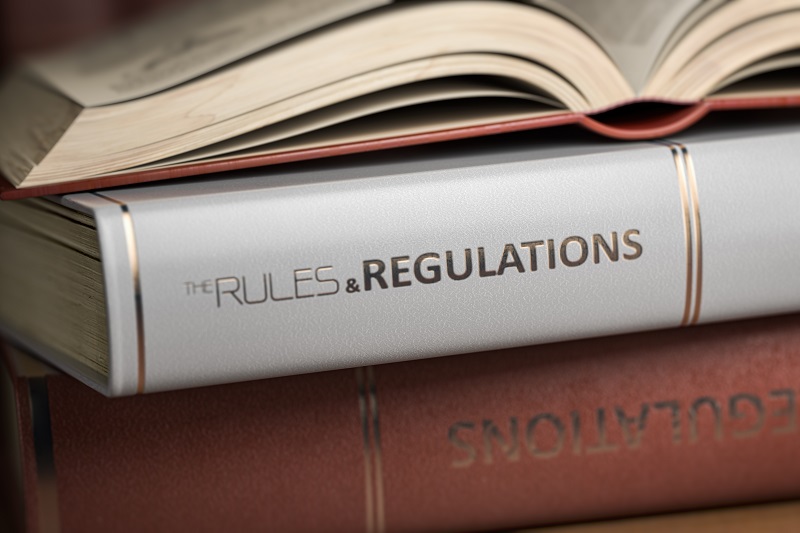Welcome to our comprehensive guide on the laws for starting a credit repair business in North Carolina. Whether you’re an aspiring entrepreneur or an existing credit repair professional, understanding the legal requirements and regulations is crucial for building a successful and compliant business in this state.
In this article, we will delve into the key laws and considerations you need to know to establish and operate a credit repair business in North Carolina.
Choose a Business Name

Select a name for your credit repair business that is unique and represents your services.
Here are some steps to help you choose the right name:
Research the Market:
Do some research on the credit repair industry in North Carolina to understand what names are commonly used and what names are available.
Brainstorm Ideas:
Get creative and brainstorm different ideas for your business name. Think about what you want your business to convey and what values you want to represent.
Check for Availability:
Before you get too attached to any one name, make sure it’s available to use. Check the North Carolina Secretary of State website to ensure the name is not already in use by another business.
Consider Your Target Audience:
Think about your target audience and what type of name would resonate with them. A name that’s catchy and memorable may be more effective at attracting younger customers, while a name that’s more straightforward and professional may be more appealing to older customers.
Make It Memorable:
Choose a name that is easy to remember and pronounce. Avoid using numbers or special characters in your name as they can be difficult to remember.
Think About Branding:
Consider how your business name will fit into your overall branding strategy. Choose a name that is flexible enough to allow for growth and expansion in the future.
Get Feedback:
Once you’ve narrowed down your list of potential names, get feedback from others. Ask family, friends, and potential customers what they think of the names you’re considering.
Overall, take the time to choose a business name that accurately represents your credit repair company and appeals to your target audience. Remember, your business name is an important part of your brand, and it can have a significant impact on your success.
Register Your Business

Register your business with the North Carolina Secretary of State. You may need to decide on a business structure (LLC, corporation, etc.) and file the appropriate paperwork.
To register your credit repair business with the North Carolina Secretary of State, you need to follow these steps:
Choose a Business Structure:
Decide on the legal structure for your credit repair business (such as an LLC, corporation, or partnership). The requirements for registration may vary depending on the chosen structure.
Check Name Availability:
Before registering your business, you must ensure that your chosen business name is available and not already in use by another entity. You can search the North Carolina Secretary of State’s business name database.
Prepare and File Formation Documents:
Depending on your chosen business structure, you will need to file the appropriate formation documents with the North Carolina Secretary of State. For example, if you choose to form an LLC, you will need to submit Articles of Organization. You can find information on the required documents for different business structures on the Secretary of State’s website.
Pay the Filing Fee:
There will be a filing fee associated with registering your business. The fee may vary depending on the type of business structure you choose. The Secretary of State’s website provides information on the fees for different structures.
Submit Your Formation Documents:
You can submit your formation documents and fees online through the North Carolina Secretary of State’s website, by mail, or in person.
Obtain an EIN

Apply for an Employer Identification Number (EIN) from the IRS. This unique number is used for tax purposes and is required for most businesses.
Here are the steps you need to follow:
Determine Your Eligibility:
Your business must be located in the United States or its territories, and you must have a valid Taxpayer Identification Number (TIN) to apply for an EIN.
Gather the Necessary Information:
Before you begin the application process, make sure you have all the necessary information on hand. This includes your business name, address, and legal structure (e.g., sole proprietorship, partnership, corporation, etc.). You’ll also need the name and Social Security number (or TIN) of the person responsible for the business.
Choose Your Method of Application:
You can apply for an EIN online, by mail, by fax, or by phone. The online application process is the quickest and easiest method.
Fill Out the Application:
If you choose to apply online, go to the IRS website and click on the “Apply for an EIN Online” link. Follow the prompts to fill out the application form. If you choose to apply by mail, fax, or phone, you’ll need to complete Form SS-4 and submit it to the IRS.
Submit the Application:
Once you’ve completed the application, submit it to the IRS. If you applied online, you’ll receive your EIN immediately. If you applied by mail, fax, or phone, it may take up to four weeks to receive your EIN.
Keep Your EIN On File:
Once you receive your EIN, make sure to keep it in a safe place. You’ll need it for tax purposes, and you may also need it to open a bank account or apply for credit.
Overall, applying for an EIN is a simple process that can be completed in just a few steps. Just make sure you have all the necessary information on hand, choose the right method of application, and submit your application to the IRS in a timely manner.
Business Permits and Licenses

Check with your local city and county offices for any required permits or licenses, as these may vary depending on the jurisdiction.
Here are the permits and licenses required for credit repair in North Carolina:
Business License:
A business license is required for most businesses operating in North Carolina. This can be obtained from the city or county where your business is located.
Trade Name Registration:
If you are operating your credit repair business under a name that is different from your personal name, you will need to register your trade name with the North Carolina Secretary of State.
State Tax ID:
You will need to obtain a State Tax ID from the North Carolina Department of Revenue if you plan to sell taxable goods or services.
Federal Tax ID (EIN):
You will need to apply for an EIN from the IRS if you plan to hire employees or operate your business as a corporation or partnership.
Surety Bond:
CSOs in North Carolina are required to obtain a surety bond in the amount of $10,000. This bond ensures that the CSO complies with all applicable laws and regulations related to credit repair.
Disclosure Statement:
CSOs in North Carolina are required to provide customers with a written disclosure statement that outlines their services, fees, and any other important information.
It’s important to note that the requirements for permits and licenses may vary depending on the location and nature of your business. Therefore, it’s always a good idea to check with your local city and county government offices to determine the specific requirements for your credit repair business.
State Law Compliance

Every state has different rules, regulations, and requirements. If you are providing services to consumers in your home state, where your business is based, you must follow the law for your state and you must comply with the federal Credit Repair Organizations Act (CROA).
This Includes:
- Providing clients with a written contract outlining the terms and conditions of your services.
- Informing clients of their right to cancel within three days.
- Not charging clients until services have been rendered.
- Not making false or misleading statements about your services.
N.C. Gen. Stat. § 66-220 et seq. refers to a section of the North Carolina General Statutes that govern credit services businesses. This part of the statute is specifically titled “Article 20 – Credit Repair Services Act.”
The purpose of these statutes is to regulate credit repair businesses and protect consumers from unfair or deceptive practices within the industry. The law sets forth provisions and requirements that credit repair businesses must follow when operating in the state of North Carolina.
Some key provisions under N.C. Gen. Stat. § 66-220 et seq. include:
Definitions (§ 66-220):
This section outlines the definitions of various terms used in the statute, such as “buyer,” “credit repair business,” and “credit services business.”
Required Information in the Contract (§ 66-221):
This section details the information that must be included in the written contract between a credit services business and a buyer, such as a description of the services to be performed, the total amount to be paid, and the buyer’s right to cancel the contract within three days.
Prohibited Practices (§ 66-222):
This section lists specific practices that are prohibited for credit repair businesses, such as making false or misleading statements, charging a fee before services are rendered, or creating a new credit identity for a buyer.
Enforcement (§ 66-223):
This section explains that the Attorney General can bring a civil action against a credit services business that violates these provisions, and that a buyer who suffers a loss due to a violation may also bring an action against the business.
Penalties (§ 66-224):
This section outlines the civil penalties that may be imposed on a credit services business for violating the statute, which can be up to $5,000 for each violation.
Exemptions (§ 66-225):
This section details the types of organizations that are exempt from the statute’s provisions, such as banks, credit unions, and attorneys.
It is important to familiarize yourself with the provisions of N.C. Gen. Stat. § 66-220 et seq. if you plan to operate a credit repair business in North Carolina. Be sure to consult with an attorney or other relevant expert to ensure you fully understand and comply with the law.
Bonding

While North Carolina requires a surety bond of $10,000 for credit repair businesses, obtaining one can build credibility and trust with clients.
N.C. Gen. Stat. § 66-222 is a section within the North Carolina General Statutes, specifically under Article 20, titled “Credit Repair Services Act.” Section 66-222 outlines prohibited practices for credit services businesses operating in the state of North Carolina.
According to N.C. Gen. Stat. § 66-222, Credit Services Businesses are Prohibited From:
- Charging or receiving any money or other valuable consideration before performing any service for a buyer, unless the credit services business has obtained a surety bond and established a trust account.
- Charging or receiving any money or other valuable consideration solely for referring a buyer to a retail seller who may or may not extend credit to the buyer.
- Making, or advising a buyer to make, any statement that is untrue or misleading, or that should be known by the credit services business to be untrue or misleading, with respect to a buyer’s credit worthiness, credit standing, or credit capacity to any consumer reporting agency,as defined in 15 U.S.C. § 1681a(f) or to any person who has extended credit to the buyer or to whom the buyer has applied or is applying for an extension of credit.
- Advising or attempting to persuade a buyer to alter the buyer’s identification to prevent the display of the buyer’s credit record, history, or rating for the purpose of concealing adverse information that is accurate and not obsolete.
- Making or using any untrue or misleading representations in the offer or sale of the services of the credit services business, including either of the following:
- Guaranteeing to “erase bad credit” or words to that effect unless the representation clearly discloses that the guarantee is limited to the removal of errors, disputed information, or obsolete information from the buyer’s credit history.
- Guaranteeing an extension of credit, regardless of the buyer’s previous credit problems or credit history.
- Guaranteeing to “erase bad credit” or words to that effect unless the representation clearly discloses that the guarantee is limited to the removal of errors, disputed information, or obsolete information from the buyer’s credit history.
- Engaging, directly or indirectly, in a fraudulent or deceptive act, practice, or course of business in connection with the offer or sale of the services of a credit services business.
- Failing to make the disclosures required by G.S. 66-221(a).
- Failing to perform the services agreed upon in the contract as required by G.S. 66-221(c).
- Transferring, assigning, or selling the contract to any person other than a credit services business that is registered with the Secretary of State under this Article.
Business Bank Account

Open a separate business bank account to keep your personal and business finances separate.
Here are the steps you need to follow:
Choose a Bank:
Research and compare different banks in North Carolina to find the one that best fits your business needs. Look for banks that offer low fees, convenient locations, and services that cater to small businesses.
Gather the Necessary Documents:
You will need to provide the bank with certain documents to open a business bank account. These documents may include your business registration documents, articles of incorporation or organization, employer identification number (EIN), and government-issued identification.
Schedule an Appointment:
Contact the bank to schedule an appointment to open your account. Some banks may allow you to open an account online, but others may require an in-person meeting.
Complete the Application:
At the appointment, the bank representative will provide you with an application to open a business bank account. Fill out the application completely and accurately, and provide any required documentation.
Make an Initial Deposit:
In order to open a business bank account, you will need to make an initial deposit. The amount of the deposit may vary depending on the bank and the type of account you are opening.
Sign the Necessary Documents:
Once your application is approved and your initial deposit is made, you will be asked to sign the necessary documents to open your account.
Receive Your Account Information:
Once your account is opened, you will receive your account information, including your account number and routing number. You can then begin using your business bank account for transactions and payments.
Overall, opening a business bank account in North Carolina is a simple process as long as you have the necessary documents and information. Just be sure to shop around to find the bank that best suits your business needs, and carefully review the terms and fees associated with your account.
Familiarize Yourself with Credit Laws

Learn about the Fair Credit Reporting Act (FCRA), Fair Debt Collection Practices Act (FDCPA), and any other relevant federal and state credit laws to ensure compliance.
The primary federal law governing credit repair companies in the United States, including North Carolina, is the Credit Repair Organizations Act (CROA).
The CROA is designed to protect consumers from deceptive and fraudulent practices within the credit repair industry. Key provisions of the CROA that credit repair businesses must follow include:
Written Contracts:
Credit repair organizations must provide clients with a written contract outlining the terms and conditions of the services they will provide. This contract must detail the payment terms, a detailed description of the services to be performed, the time frame for service completion, and any guarantees offered.
Right to Cancel:
Clients have the right to cancel the contract without penalty or obligation within three business days after signing it. The credit repair organization must inform the client of this right and provide them with a cancellation form.
Prohibition of Upfront Fees:
Credit repair organizations are prohibited from charging or accepting payment from clients until they have completed the promised services. This means that businesses cannot charge fees before any work is done.
Prohibition of Misleading Statements:
Credit repair organizations are not allowed to make false or misleading statements about their services, guarantees, or potential outcomes. This includes exaggerating the results they can achieve or claiming to be able to remove accurate, negative information from credit reports.
Disclosure Requirements:
Credit repair organizations must provide clients with a disclosure statement, separate from the contract, which includes information about the client’s legal rights and the organization’s responsibilities under the CROA.
In addition to the CROA, credit repair businesses must also comply with other federal laws related to consumer credit, such as the Fair Credit Reporting Act (FCRA) and the Fair Debt Collection Practices Act (FDCPA).
These laws regulate how credit reporting agencies, creditors, and debt collectors handle consumer credit information and collection practices.
Develop a Business Plan

Outline your marketing strategy, target audience, and financial projections to guide your business growth.
Here are some steps to help you effectively develop a business plan:
Define Your Business:
Start by defining your credit repair business. Identify your target market, services you will offer, and your unique value proposition.
Conduct Market Research:
Conduct market research to better understand the credit repair industry in North Carolina. This will help you identify opportunities and threats, and refine your business strategy.
Develop a Marketing Plan:
Determine how you will reach your target audience, including which marketing channels you will use and what your budget will be.
Set Financial Goals:
Determine your financial goals for your business, including your revenue projections, expenses, and cash flow.
Identify Your Competition:
Identify your competition in North Carolina and determine how you will differentiate yourself from them.
Outline Your Management Structure:
Outline your management structure, including who will be responsible for what areas of your business and what their qualifications are.
Develop a Contingency Plan:
Develop a contingency plan to address potential risks and challenges that may arise in the course of your business.
Write Your Business Plan:
Using the information you have gathered, write your business plan. Make sure it is clear, concise, and provides a roadmap for your business.
Review and Revise:
Once you have completed your business plan, review it carefully and revise it as needed. Make sure it accurately reflects your business goals and objectives.
Overall, developing a business plan takes time and effort, but it is essential for the success of your credit repair business in North Carolina. Make sure to conduct thorough research, set realistic goals, and develop a clear roadmap for your business.
Market Your Business

Use online and offline marketing channels to promote your services and attract clients. This may include creating a website, engaging on social media, and attending local networking events.
Here are some steps to help you effectively market your credit repair business:
Identify Your Target Audience:
Identify your target audience and understand their needs, pain points, and interests. This will help you tailor your marketing messages to them.
Develop a Strong Brand:
Develop a strong brand that accurately reflects your business and appeals to your target audience. This includes developing a logo, brand voice, and marketing materials.
Create a Website:
Create a website that is easy to navigate and provides clear information about your services. Make sure your website is optimized for search engines, so it appears at the top of search results when potential customers search for credit repair services in North Carolina.
Use Social Media:
Use social media to connect with potential customers, share helpful content, and build relationships with your audience. This includes creating profiles on popular platforms like Facebook, Twitter, and LinkedIn.
Develop Content Marketing:
Develop content marketing that provides valuable information to your target audience. This includes blog posts, videos, and social media posts that educate your audience about credit repair and help establish your business as a trusted authority in the industry.
Leverage Customer Reviews:
Encourage satisfied customers to leave reviews of your business on popular review sites like Yelp and Google. These reviews can help build trust and credibility with potential customers.
Attend Networking Events:
Attend networking events in North Carolina to meet potential customers and partners and to promote your business.
Ready to start your credit repair business in North Carolina?
Make sure you are informed and compliant with the latest state laws.
Click now to learn more.
We hope this article has provided a comprehensive understanding of the laws for starting a credit repair business in North Carolina. By following these legal requirements and best practices, you can establish a reputable and compliant credit repair business in the state, serving individuals who seek assistance in improving their credit scores.
Bonus: Now that you have read this article, why not take your new skill and start your own credit business helping others? We have free training that can help you do just that.

